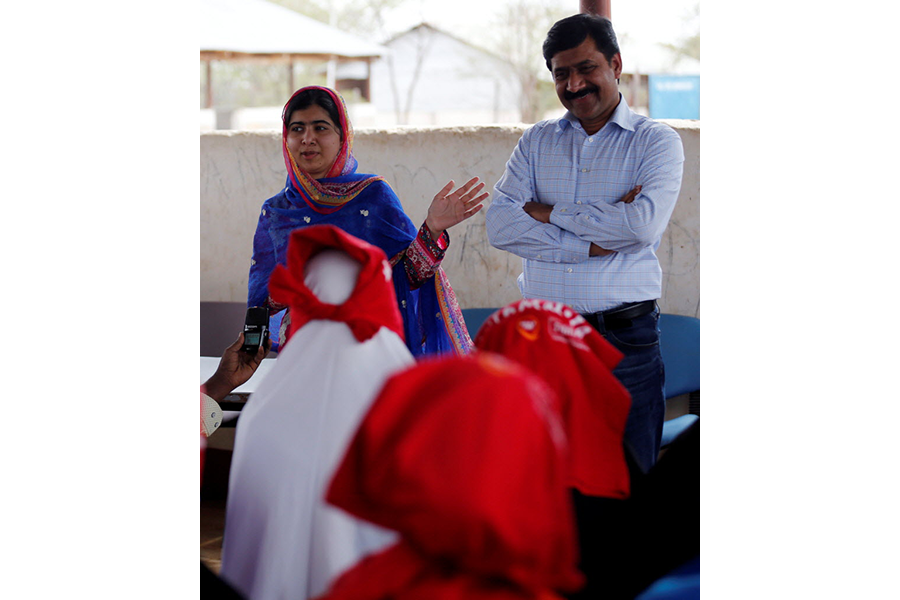How Malala Yousafzai goes on inspiring the world
The world’s youngest Nobel laureate turned 19 on Tuesday, and she chose to celebrate her birthday by visiting the world’s largest refugee camp, voicing concerns that Kenya’s plans to close it could create “a generation lost.”
Malala Yousafzai rocketed to global fame in 2012 when she was shot in the head by a member of the Taliban while on a school bus, having since dedicated her life to ensuring that girls “complete 12 years of safe, quality education so that they can achieve their potential and be positive change-makers in their families and communities.”
In visiting the Dadaab refugee camp, which has existed for 25 years, Ms. Yousafzai was highlighting her fears that the camps’ girls would lose their access to education if forcibly returned to Somalia.
"As we all know, the camp is going to be closed down soon,” Yousafzai told the Associated Press, “so I want to make sure that these girls don't become a generation lost, and there are alternative facilities for them to continue with their education."
Kenyan authorities announced in May that they planned to close the site, which sits in eastern Kenya near the Somali border, citing security concerns. But since the camp has existed for so many years, many of Dadaab’s residents have known no other home.
Kenya has suffered an increasing number of attacks by the Somali extremist group Al Shabab, which have killed scores of people since 2011, when Kenyan troops were deployed to tackle the militants. The Kenyan government has alleged that some of these attacks originated in the Dadaab refugee complex.
In visiting the refugee camp, however, Yousafzai was seeking to turn the world’s attention to just one example of a region where girls’ education is neglected, having said she plans to visit one such area each year on her birthday.
"I am here to speak for my unheard sisters of Somalia striving for education every day," Yousafzai said, having been in touch with a group of girls from the camp via Skype since last year.
Upon her arrival, large numbers of girls poured out to greet her, some draped in red scarves bearing Malala’s name.
Yousafzai’s story began in 2009, when she started blogging anonymously for the BBC about what it was like to live under the Taliban, the group having taken control of the Swat region of Pakistan, where she lived, just a year earlier. One of their first actions had been to shut down all girls’ schools.
Anonymity failed to protect her, and after Yousafzai was shot by the Taliban and spent time recovering in Britain, she determined that the experience would only wed her more implacably to the cause of girls’ education.
“I think they made a big mistake, because I was fighting for the right for education right from the beginning when the Taliban stopped girls from going to school,” Yousafzai told Ellen DeGeneres in 2015. “And now I strongly believe that nothing can stop me in this mission and this campaign of education to say that girls deserve the right to go to school. And it's the love of people as well that has encouraged me and helped me."







